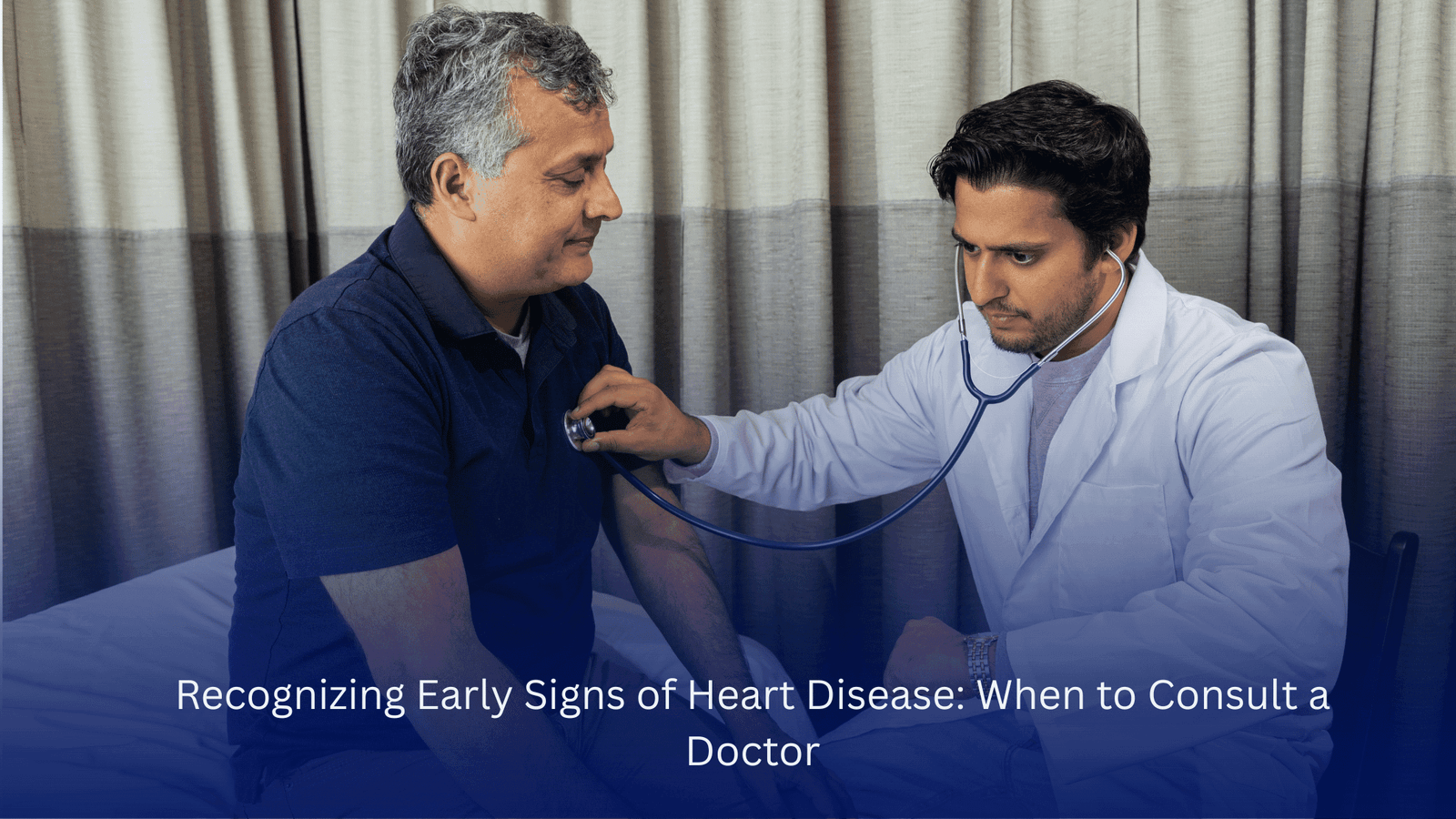Early Signs of Heart Disease | When to See a Doctor
Heart disease remains one of the leading causes of death worldwide. Despite significant medical advancements, the key to reducing the burden of heart disease lies in early recognition and timely medical intervention. Unfortunately, many early signs of heart problems are subtle and often mistaken for less serious health issues. This blog post will help you understand the early symptoms of heart disease, who is at risk, and when to seek professional medical help.
Understanding Heart Disease
Heart disease refers to a range of conditions that affect the heart. These include:
- Coronary artery disease (CAD)
- Heart arrhythmias (abnormal heart rhythms)
- Heart failure
- Congenital heart defects
- Cardiomyopathy (disease of the heart muscle)
While each condition has unique characteristics, many share common warning signs that should never be ignored.
Why Early Detection Matters
The earlier heart disease is detected, the better the chances of successful treatment and prevention of complications. Early diagnosis allows for lifestyle changes, medications, and other therapies that can reduce the risk of a heart attack or stroke.
Common Early Signs of Heart Disease
1. Chest Discomfort or Pain
Often described as pressure, tightness, or a squeezing sensation in the chest, this is one of the most recognizable signs. It may occur during physical activity or even at rest. If the pain spreads to the arm, neck, jaw, or back, it’s a strong warning sign.
2. Shortness of Breath
Difficulty breathing, especially during exertion or while lying down, can indicate heart trouble. It may occur with or without chest pain.
3. Fatigue
Unusual or persistent fatigue that doesn’t improve with rest could be a sign of a weakening heart that isn’t pumping efficiently.
4. Palpitations
Irregular or rapid heartbeats, fluttering, or a feeling that your heart is skipping beats may suggest an arrhythmia.
5. Dizziness or Lightheadedness
Feeling faint or dizzy, especially when standing up, can result from reduced blood flow to the brain due to heart issues.
6. Swelling in the Legs, Ankles, or Feet
Fluid retention caused by poor circulation or heart failure can lead to visible swelling, particularly in the lower extremities.
7. Persistent Cough or Wheezing
A long-lasting cough, especially with white or pink mucus, may be a sign of heart failure.
8. Sweating
Cold sweats without physical exertion, particularly when accompanied by chest pain or nausea, may signal a heart attack.
Who Is at Risk?
Certain factors increase your risk of developing heart disease:
- High blood pressure (hypertension)
- High cholesterol
- Diabetes
- Obesity
- Smoking
- Sedentary lifestyle
- Poor diet
- Family history of heart disease
- Age (especially men over 45 and women over 55)
- Chronic stress
When to See a Doctor
You should consult a healthcare professional if you experience:
- Chest pain that lasts more than a few minutes
- Shortness of breath at rest or during activity
- Episodes of dizziness, fainting, or heart palpitations
- Swelling in the lower body not linked to injury
- Persistent fatigue interfering with daily life
- Any unusual symptoms that persist or worsen
Don’t wait for symptoms to become severe. Timely evaluation and testing can make all the difference.
Tests Used to Diagnose Heart Disease
A doctor may use several diagnostic tools, including:
- Electrocardiogram (ECG or EKG) – measures electrical activity of the heart
- Echocardiogram – ultrasound of the heart to check for structural problems
- Stress Test – assesses how your heart performs under stress
- Blood Tests – check for markers of heart damage or risk
- Coronary Angiogram – looks for blockages in the heart’s arteries
How to Monitor Your Heart Health at Home
You can take proactive steps by:
- Regularly checking blood pressure
- Monitoring heart rate
- Using smartwatches or fitness trackers
- Keeping a health journal to note symptoms
If anything feels off or unusual, contact your doctor.
Preventive Tips for a Healthy Heart
- Eat a Heart-Healthy Diet: Focus on fruits, vegetables, whole grains, lean protein, and healthy fats.
- Exercise Regularly: Aim for at least 30 minutes of moderate activity most days.
- Quit Smoking: It’s one of the most significant ways to protect your heart.
- Limit Alcohol: Drink in moderation, if at all.
- Manage Stress: Practice mindfulness, yoga, or deep breathing.
- Get Regular Checkups: Especially if you have risk factors.
Conclusion
Heart disease doesn’t happen overnight. The signs often develop gradually and can be easily missed if you’re not paying attention. Listen to your body. If you notice any of the symptoms mentioned in this post—especially if you have risk factors—see a doctor promptly.
Early intervention can save lives. Prioritize your heart health today for a healthier tomorrow.

